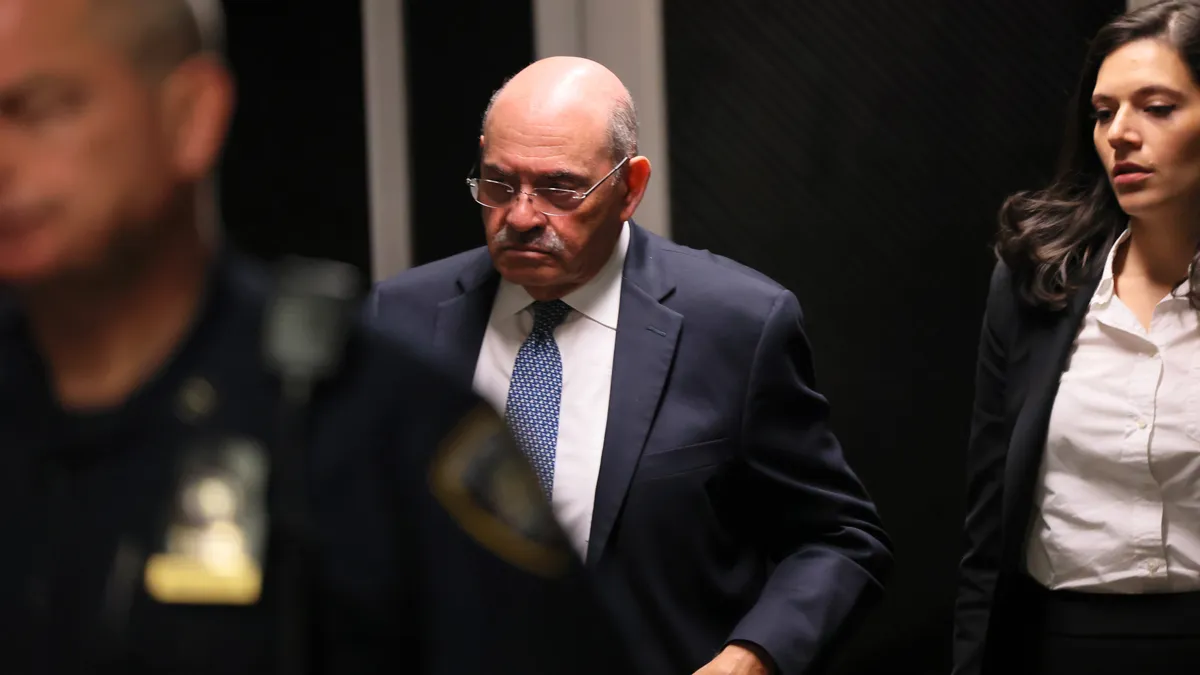Dive Brief:
-
Allen Weisselberg, the Trump Organization’s ex-finance chief and a named defendant in the civil-fraud case against his long-time employer and former President Donald Trump, downplayed the importance of the valuation of Trump’s own apartment in the company’s financial reports when he took the witness stand Tuesday.
-
Under questioning from Louis Solomon of the New York Attorney General’s office as the trial entered its second week, Weisselberg conceded that Trump’s own triplex apartment in New York City’s Trump Tower was only 10,966 square feet even though the company’s statements of financial condition listed the apartment as 30,000 square feet starting in 2012, ABC News reported.
-
In an exchange about the discrepancy, Weisselberg said there were other items he had been more worried about, NBC reported in its live trial updates. “The value of that apartment relative to his net worth is not material. It’s about 1%,” Weisselberg said, according to the report. “Looking at the statement of financial condition there were much larger items on there that I was more concerned about.”
Dive Insight:
Real estate valuations are part of the typically routine financial reporting practices at the heart of the case against the Trump Organization — making it a cautionary tale for senior executives wrestling with potentially flawed appraisals.
Ahead of the trial, New York Supreme Court Judge Arthur Engoron last month found that New York Attorney General Letitia James had satisfied the burden of establishing liability on the part of the defendants related to their use of fraudulent documents that inflated the value of many of Trump’s signature real estate assets.
In his ruling, Engoron called out the company’s inflation of the size of Trump’s triplex, saying that it resulted in an overvaluation of between $114 million and $207 million. A “discrepancy of this order of magnitude, by a real estate developer sizing up his own living space of decades, can only be considered fraud,” the judge wrote. Trump’s attorneys appealed Engeron’s decision and Trump has asserted that the suit is politically motivated.
While Engoron also authorized James to cancel certificates for certain Trump companies, an appeals court subsequently stayed the cancellation, allowing the company to do business in the state, Industry Dive sister publication Legal Dive reported.
On the stand Tuesday Weisselberg wavered around whether he reviewed the financial documents with Trump, NBC reported. In the morning he said he didn’t recall discussing the financial statements. After a lunch break Weisselberg said that from 2011 until Trump became president, Trump was given the statements before they were finalized.
In January Weisselberg was sentenced in a separate case to five months for tax fraud related to a scheme to evade income taxes by hiding compensation while employed at the Trump real estate company. In April he was released after serving about 100 days in New York’s Rikers Island prison.
In a May deposition taken in the civil case now before Engeron, Weisselberg said he was working to re-acclimate himself to society after his time in prison.
“I have not slept well. I’m 76 years old almost,” he said, according to the filing. “And after…what I considered a very quiet normal business, a job that I had over all these years, to be thrown into this situation has had a traumatic impact on my day-to-day life and my family’s life.”








